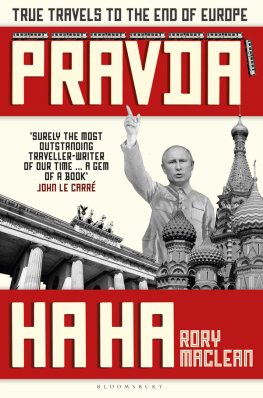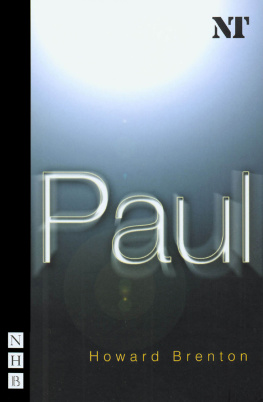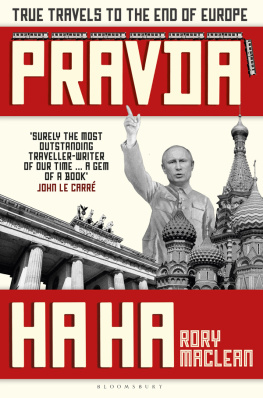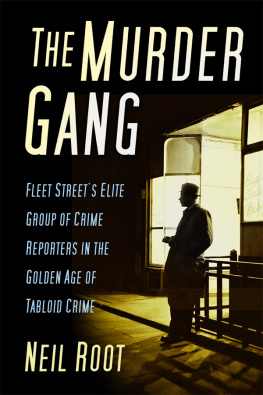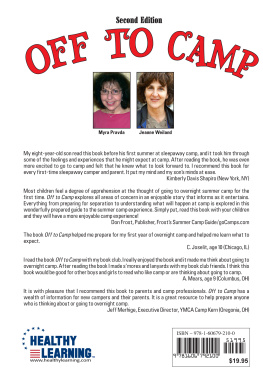Methuen Drama Modern Classics
The Methuen Drama Modern Plays series has always been at the forefront of modern playwriting and has reflected the most exciting developments in modern drama since 1959. To commemorate the fiftieth anniversary of Methuen Drama, the series was relaunched in 2009 as Methuen Drama Modern Classics, and continues to offer readers a choice selection of the best modern plays.
Pravda
Pravda (which means truth) is a comedy of excess which for the first time, put modern Fleet Street on the stage.
Pravda is an epic comedy part The Front Page , part Arturo Ui in which a press baron resembling Rupert Murdoch does battle with over thirty characters as he conquers Fleet Street journalism and, by implication, liberal Englands soul.
Frank Rich, New York Times
This was Howard Brentons and David Hares first collaboration since Brassneck in 1973. It was premiered at the National Theatre in spring 1985 and awarded the London Standard Best Play Award, the City Limits Best Play Award and the Plays and Players Best Play Award.
This edition includes a foreword by Jonathan Church and an introduction by Philip Roberts.
a sulphurous and crackling entertainment Observer
Howard Brenton is a British dramatist, noted for his controversial political plays of the 1970s and 1980s. He became resident dramatist at the Royal Court in 1972, following on from David Hare. His plays include Revenge, Brassneck , The Churchill Play, Epsom Downs, The Romans in Britain, Pravda (a collaboration with Hare), Berlin Bertie, Paul, Never So Good , and In Extremis . He also wrote episodes for the TV programme Spooks and has translated many plays into English. In 2011 he won a Theatregoers Choice Award for Best Play for his Anne Boleyn .
David Hare is a British playwright and director, noted for his critical examination of post-war British society. In 1968, he became a founder of the travelling fringe company Portable Theatre, which performed some of his early plays. The following year he became resident playwright at the Royal Court Theatre, before being made resident playwright at the Nottingham Theatre in 1973. In 1974, he co-founded the Joint Stock Company. His plays include Slag, Brassneck (a collaboration with Howard Brenton) , Fanshen, Pravda, Racing Demon, Murmuring Judges, The Absence of War, Amys View, Via Dolorosa, The Permanent Way, Stuff Happens, The Vertical Hour, The Power of Yes, Berlin and Wall . He was knighted in 1998.
Howard Brenton and David Hare
Pravda
Foreword by Jonathan Church
Introduction by Philip Roberts
Bloomsbury Methuen Drama
An imprint of Bloomsbury Publishing Plc
Pravda
Foreword
Jonathan Church, Artistic Director, Chichester Festival Theatre
The decision to produce Pravda in 2006 was an important one for us in Chichester. It was our first season under our new management and we had a specific job to do in terms of winning back an audience while maintaining an ambitious programme that justified newly won Arts Council and local authority subsidy.
We also felt passionately that the way to make the vast 1200 seat thrust Festival Theatre auditorium really light up for our audience was to produce works of scale and crackling theatricality. I had recently revived David Hares trilogy of plays at Birmingham and knew first-hand the pleasure of delivering this kind of large scale political work in a big auditorium, and so I was keen to look at Davids other plays that were written for the National Theatre.
I hadnt seen Pravda in its first production but what struck me as I read it in the wake of recent media accusations about Tony Blair being too close to Rupert Murdoch and News International was both its relevance and, 20 years on from its original production, how prophetic it turned out to be. While the world knew in the 1980s that Murdoch and his empire was worrying, Howard and David had gone a step further and predicted just how dangerous this man and his media empire could become.
Of course Chichester might not seem the obvious place politically or socially to examine this, but the great theatrical trick that Howard and David achieved was to make the play wildly, bitingly and enjoyably funny for an audience sugar coating the very serious pill.
From Birminghams point of view it seemed an ideal follow up to the success we had achieved with the Hare Trilogy, and so as I left one organisation and joined another, the bridge between them was to be Pravda .
Joining Pravda in our first season at Chichester were David Edgars enormous two-part adaptation of Nicholas Nickleby and Rogers and Hammersteins legendary musical Carousel . A rich feast, we hoped, of epic work for our stage and West Sussex audiences.
Of course one of the things that helped define Pravda in its original production was an immense central performance from Anthony Hopkins. We were blessed by Roger Allam agreeing to take on the role of Lambert Le Roux (the first time I think he had played in Chichester) and, with his extraordinary experience of big stages like the Olivier, he delivered the most thrilling performance of our opening season.
The production became an important marker for us. It was perhaps one of our most risky bits of programming in The Festival Theatre in our first three years, and a long way in terms of style and content from what Chichester had become best known for over the years. What it demonstrated to us was that there was an audience here that was willing to be challenged, that wanted to be engaged with politics and that was interested in ambitious theatrical form. This discovery with Pravda encouraged us to produce much more new work and to look at how we might challenge this audience further. In many ways it led directly to us producing Enron by Lucy Prebble, Rupert Goold and Ben Powers radical re-interpretation of Six Characters in search of an Author , and Alistair Beatons new version of Arturo Ui, alongside an increased volume of new work.
It is hard to judge accurately eight years later just how the audience reacted to Pravda in Chichester and Birmingham. I do however remember one interesting observation that David and Howard made at the time about how the shock of the play, and the audiences surprise at Lambert Le Rouxs extreme character, seemed slightly diminished 20 years on from its first production. They speculated that when it was written in 1985 perhaps a large swathe of the public still believed that the majority of the press told the truth in 2006, given the extraordinary shenanigans of our press in the intervening 20 years virtually no-one believed this!
Im convinced they are correct. I also believe that, like many great political plays, it looks into the future and speculates on the horrors to come. While they were way ahead of the game in terms of drawing our attention to the terrifying rise of Murdoch, recent history has gone way beyond even their wildest dreams.
I remember coming across an article while preparing for rehearsals that summed up how relevant Pravda felt in 2006:
From its manicured golf course with the breathtaking ocean view, to its pampering spa, the Pebble Beach resort in California should be an ideal spot to unwind. But the guests checking in next weekend globetrotting politicians, hotshot analysts and senior executives from Rupert Murdochs mighty News Corporation are not here to relax. They will gather for one of the media empires legendary conferences, an intellectual beauty parade before one of the most powerful men on the planet.

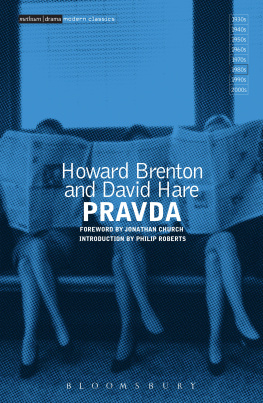
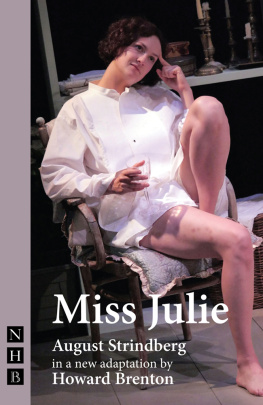
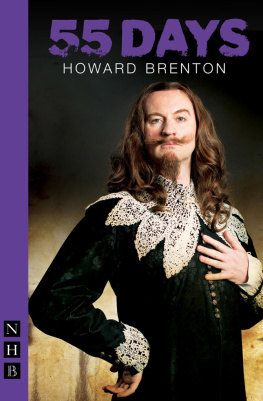
![Edvard Doks - Pravda ['Self Help' in the UK]](/uploads/posts/book/831421/thumbs/edvard-doks-pravda-self-help-in-the-uk.jpg)
